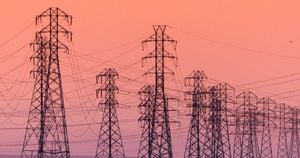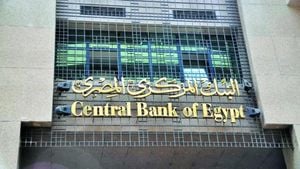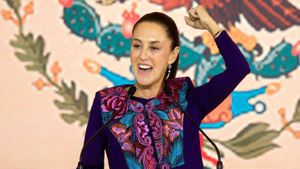The snap elections held on February 23 in Germany have resulted in significant shifts within the political arena, marking the Christian Democratic Union/Christian Social Union (CDU/CSU) as the frontrunner according to exit polls. Reports from ARD and ZDF indicate the conservative bloc received approximately 29% of the votes, leading the polls.
For the first time since World War II, the far-right Alternative for Germany (AfD) party followed closely behind, polling between 19.5% to 20%. Meanwhile, the established parties saw dramatic shifts: Olaf Scholz’s Social Democratic Party (SPD) garnered only 16% to 16.5% of the votes, and the Green Party achieved results between 12% to 13.5%. The Left Party received between 8.5% to 9%, and newly established parties struggled to reach the required 5% threshold to enter the Bundestag.
The proposal for snap elections arose from mounting political instability following the collapse of Chancellor Scholz's coalition government due to internal conflicts exacerbated by budget disagreements. According to reporting by Bloomberg, the dissolution was triggered by the resignation of Finance Minister Christian Lindner, leader of the Free Democratic Party (FDP). The Bundestag’s vote of no confidence against Scholz pushed for this electoral process aimed at stabilizing the political environment.
The election day witnessed high voter turnout, marked at around 83%, showcasing the electorate's engagement amid the crisis. Scholz has acknowledged his party's defeat, extending congratulations to Friedrich Merz, the CDU/CSU leader who is now positioned as the likely next Chancellor. Merz’s strict immigration policies and propositions to return to nuclear energy have been significant elements of his campaign.
The surge of the AfD, having doubled its support since the last elections, reflects growing discontent among voters, particularly workers and those struggling financially. Analysts suggest this trend could pivot the political conversation toward nationalism and economic protectionism.
Coalition negotiations will now begin, as the CDU/CSU lacks the overall majority needed to govern alone. The coming weeks will determine the partnerships formed, with other parties like the FDP and the Left Party on the brink of the threshold necessary for parliamentary involvement. Political analysts anticipate lengthy discussions, fueled by the parties' varying stances on key issues such as migration and fiscal policy.
Scholz's coalition, historically labeled as the “traffic light coalition,” which included the SPD, the Greens, and the FDP, has now fallen apart. There are concerns over potential stagnation as parties realign themselves to negotiate new governing frameworks. Observers note the chance for the far-right AfD to gain greater national influence, which might alter Germany's traditional political balance.
Further results will emerge as all votes are counted and confirmed, showing not only the disposition of the main parties but also giving insights about the smaller parties vying for representation. For many, the question looms—how will the new coalition shape the future of Europe’s largest economy?
With the global community watching, the decisions stemming from these elections are likely to have far-reaching consequences, potentially altering Germany's approach to issues like immigration, energy policy, and its role within the European Union.



